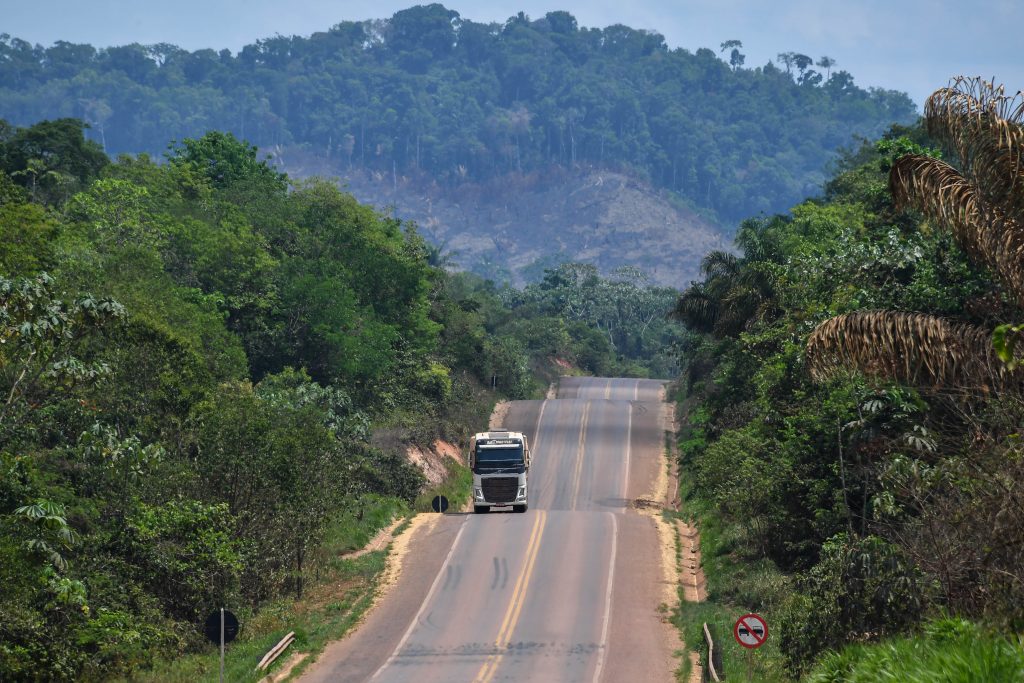São Paulo – Amid the pandemic of the new coronavirus, the Brazilian production sector races against time to identify the bottlenecks in logistics between the rural area and the domestic and foreign consumer. To identify the current logistic challenges, the National Confederation of Agriculture (CNA) has opened a channel to listen to the needs of the producers. The most problematic aspect that has been identified is the truck traffic on roads.
“We’ve set up a group to evaluate the sectors in crisis. Our biggest issue was making sure that logistics wouldn’t stop, and food production would be included in the essential activities. On the 20th, the Provisional Measure #926 and the decree listing the essential activities were approved, and food production was not just included among them but all of its chain was defined as essential, so it cannot stop,” CNA technical superintendent Bruno Lucchi told ANBA.
Lucchi says that the issue was raised because a few days ago some cities had closed roads and agriculture stores. CNA Logistics and Infrastructure advisor Elisangela Pereira Lopes, points out that there still are road closures across the country. “It isn’t in a specific region. For example, there are one in BR 163 in Mato Grosso, one in BR 101, which spans from south to north along the coast, another one in BR 242, which picks up grains and take them to Porto de Ilhéus, Bahia. They are the Brazil’s main trade routes,” Lopes says.

The organizations are now coming up with solutions for the infrastructure. “Truck drivers are complaining about the closing of roadways and establishments such as auto shops, tire shops, restaurants, truck stops. They worry whether they can still manage to keep working as truck drivers. We’re identifying the main bottlenecks in this regard,” Lopes says.
To make the worker’s journey easier, the roadway concessionaries are listing the places that are still working and telling the truck drivers where they can find a restaurant, tire shop, and auto shop.
CNA does not have any medium- or long-term forecast but assures that it’s studying and defining actions on a daily basis. The Ministry of Infrastructure has also opened a channel to receive information about the truck driver’s health and has met every second day with organizations of the production and logistics sector to update and define new measures.
Refrigerated containers for exporting
As for the export logistics, the concern is with foodstuffs that need refrigeration, such as meats. “None of the containers that were exported to China and Europe have come back. Many refrigerated ones are finding difficulties to return to Brazil. Since it’s a long journey, we believe they could arrive over the next few weeks,” Lucchi said.
The delayed return is due to the period when these containers were stuck in ports such as Shanghai’s, which was halted for days. “The container that arrived there had to go to other ports, such as Hong Kong’s. It didn’t take long for the port activity started working again, but the time the ships stood there were much longer than it was planned. The container companies started having less available equipment. This occurred last week and was a major problem for refrigerated products,” he explained. But Lucchi says that there wasn’t any delay in the shipments and that the return of those containers could avoid any bottleneck.
In the Port of Santos, one of Brazil’s major ports, the workers even demanded that operations were halted, but the Port has issued a press release on the 23 reporting that it will keep operating as usual. The shipments by plane, on the other hand, such as fruits, most of which come from the Northeast by scheduled flights, have struggled to reach their destinations. With so many cancelled flights, the superintendent says that negotiations are in progress to redefine routes and ways to ship fruits.
When arriving at their foreign destinations, the products don’t find any barrier. “Actually, many countries are making the entry of food cargoes easier,” Lucchi stressed. According to CNA, the sensitive points in distribution are perishable items such as fruits, dairy products, and flowers. These products, that used to be sold in food service, bars, restaurants, and farmers’ markets, are now being redirected to retail and online commerce.
Less bureaucracy, more preventive measures
Bureaucracy is another barrier that the organizations are trying to take out of the way. “On the 25th, we presented an official letter asking for a working capital line for the most affected sectors with more assistive interest rates than the ones currently being applied and extension of financial agreement, as well as less bureaucracy given the current juncture. Whatever we can simplify and not notarize is ideal. When everything goes back to normal, they can ask that,” Lucchi explained.
Defined as an essential activity, the producers will now have to turn themselves to prevention guidelines for them and their employees. “All rural properties and agribusiness will implement safety measures. We’ll delve into sugarcane and coffee crops, and those that had one bus to take 40 workers now must divide them into two buses so that they’re not that close and expand dining halls. The sector has directed its employees about hygiene and hired more personel. Those that get seek will spend some days in quarantine. It’s an extra cost but secures crops and follows all the recommendations,” Lucchi says.
Another concern is supplying raw material to help truck drivers in hygiene and not being infected by COVID-19. The Sugarcane Industry Union (UNICA) has donated 1 million liters of 70% alcohol to six different states. CNA donated BRL 5 million (USD 994,730) to help the healthcare system. “It can go to the health of the farmer so that it can continue producing. It can go to agricultural towns or even hospitals. We’ve also received popular manifestations to raise inputs for the truck drivers. As it happened in 2018 truck drivers’ strike, the society is quite aware of how important it’s that this service doesn’t stop,” Lopes pointed out.
Toll-free
Another measure to facilitate cargo fluidity and preventing truck drivers to get infected is exempting them from tolls. The measure has been implemented through an agreement between the road concessionaries and tag operators, which have distributed equipment for the truck drivers to remain exempt for three months. Last Thursday (26), Grupo CCR signed a partnership with automatic toll system operators to distribute 23,000 tags. “The idea is that there is no physical contact with the people in the toll-charging booths,” the advisor said, pointing out that the demand was raised by CNA in previous meetings with the organizations.
Translated by Guilherme Miranda




